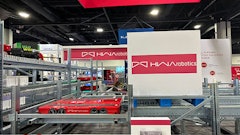
The National Retail Federation (NRF) releases a new report that shows ports in the United States set records for imports for this spring, and will see near-record volume for the month. It is believed that retailers are bringing in merchandise now to prepare for rising costs and future supply chain issues. The monthly report, Global Port Tracker, expects the first six months of 2022 to total 13.5 million twenty-foot equivalent units (TEU).
Per NRF Press:
- U.S. ports covered by Global Port Tracker handled 2.34 million Twenty-Foot Equivalent Units – one 20-foot container or its equivalent – in March, the latest month for which final numbers are available. That was up 10.8 percent from February and up 3.2 percent year over year. It also topped the previous record of 2.33 million TEU set in May 2021 for the number of containers imported in a single month since NRF began tracking imports in 2002
- Ports have not yet reported April numbers, but Global Port Tracker projected the month at 2.27 million TEU, up 5.7 percent from last year. May is forecast at 2.3 million TEU, which would be down 1.4 percent from last year but nonetheless the third-highest level on record.
- June is forecast at 2.29 million TEU, up 6.6 percent from last year; July at 2.31 million TEU, up 5.3 percent; August at 2.29 million TEU, up 0.9 percent, and September at 2.15 million TEU, up 0.3 percent.
“Retailers are importing record amounts of merchandise to meet consumer demand, but they also have an incentive to stock up before inflation can drive costs higher,” NRF VP for supply chain and customs policy Jonathan Gold says. “Whether it’s freight costs or the wholesale cost of merchandise, money retailers save is money that can be used to hold down prices for their customers during a time of inflation. In addition, retailers are preparing for any potential disruptions because of the West Coast port labor negotiations, which are set to begin next week. NRF has previously encouraged the parties to remain at the table and not engage in disruptions if a new contract is not reached by the time the current agreement expires July 1.”


























